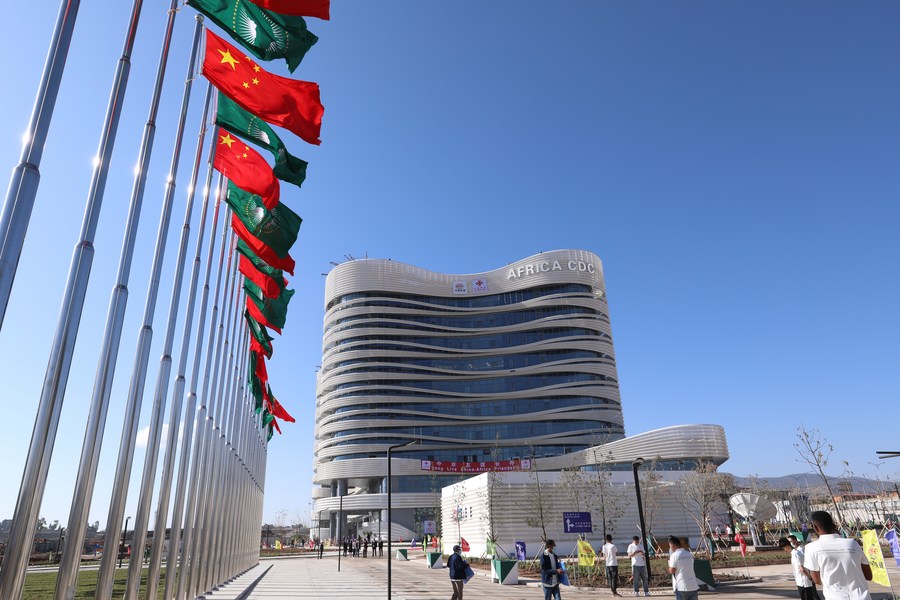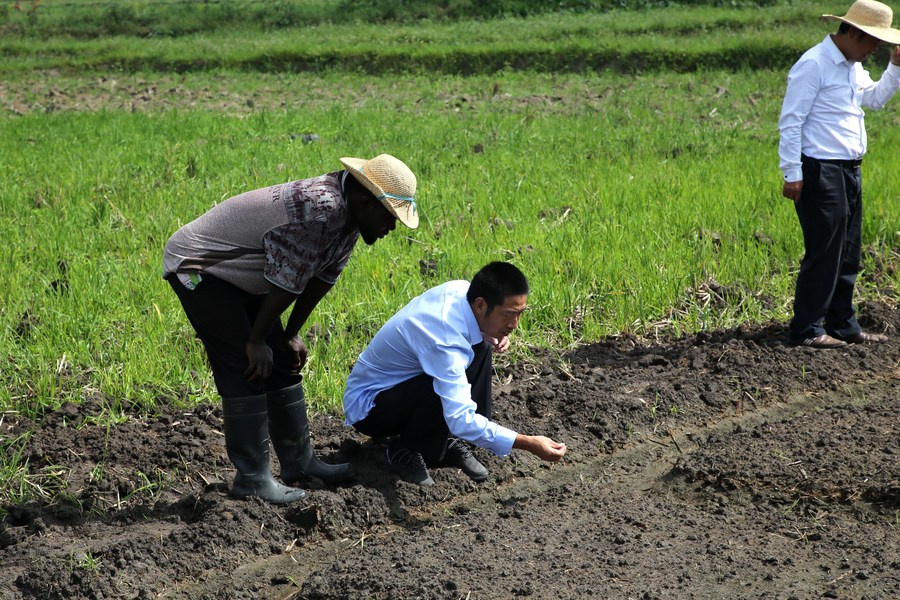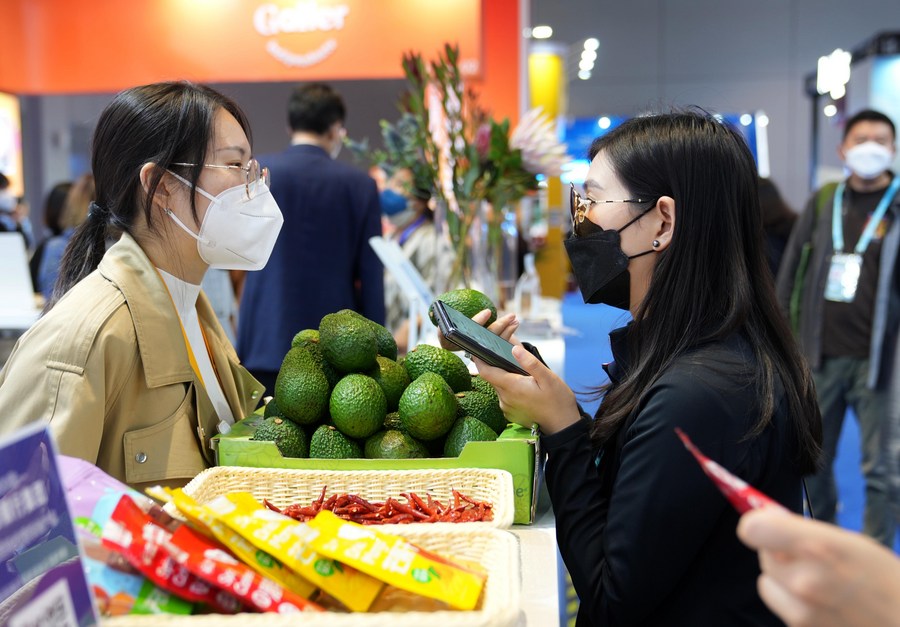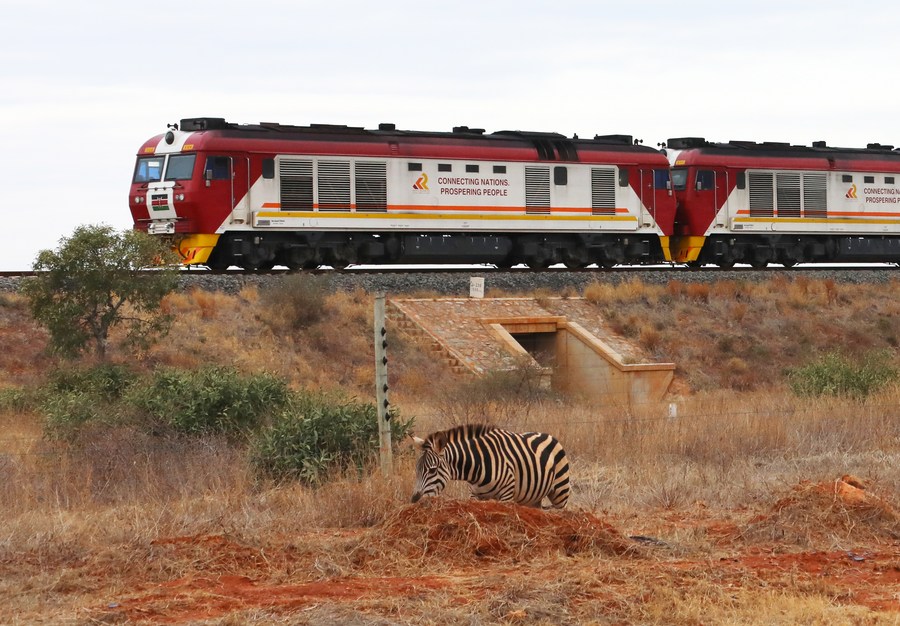World Insights: How China honors its commitments to Africa cooperation in the new era

This photo taken on Jan. 11, 2023 shows the headquarters building of the Africa Centers for Disease Control and Prevention (Africa CDC) in Addis Ababa, Ethiopia. (Xinhua/Dong Jianghui)
China and Africa, which together account for about one-third of the world's population, are working closely to build a high-level community with a shared future crucial to the well-being of all humankind, according to Kenyan international relations expert Cavince Adhere.
NAIROBI, March 29 (Xinhua) -- China put forward the principles of sincerity, real results, amity and good faith, and pursuing the greater good and shared interests in 2013 to guide its cooperation with Africa.
Over the past decade, China's efforts have greatly improved African people's life quality and well-being and strengthened African countries' development capacity. The two sides have also cooperated to build a robust China-Africa community with a shared future in multiple fields.

A Chinese agricultural expert inspects rice production in Ninga Village, Bubanza Province, Burundi, on March 12, 2019. (Xinhua/Lyu Tianran)
IMPROVING AGRICULTURE
Being unable to access quality disease-resistant seeds that can withstand harsh climates has hindered African countries from becoming food-secure. Millions of people have been starvation-plagued for years, and malnutrition has been common on the continent.
China has helped African countries boost food security and alleviate poverty by introducing hybrid rice.
Charles Ngendakumana, a farmer in Bubanza province, northwestern Burundi, is a beneficiary of this initiative. Five years ago, with the guidance of Chinese agricultural experts, Ngendakumana started growing hybrid rice known for withstanding climatic stresses, pests and diseases.
After that, his farmland in Ninga, a village in the Commune of Gihanga, increased from half a hectare to five hectares, and the yield per hectare also tripled.
"I want to buy more land, more cows and several new water pumps when the dry season comes," said Ngendakumana. This was unthinkable before the Chinese experts arrived when it was arduous work to secure enough food.
China has supported addressing food shortages on the African continent through various means, such as dispatching experts and constructing demonstration villages.

This photo taken on Nov. 7, 2022 shows avocados from Kenya displayed at the food and agricultural products exhibition area of the fifth China International Import Expo (CIIE) in east China's Shanghai. (Xinhua/Liu Ying)
BENEFICIAL TRADE
China has simplified import procedures to boost trade in African agricultural products. This March, the first batch of fresh Kenyan avocados arrived at a port in Shanghai and quickly made their way to Chinese homes.
Agribusiness Kakuzi Limited is one of the local firms that have secured regulatory approval to export avocados to China after Kenya signed bilateral trade protocols with China in January 2022, which paved the way for the shipments of highly nutritious tropical fruit and aquatic products.
The shipments to China have provided much-needed growth leverage for Kenyan producers seeking to diversify their markets, said Kakuzi's managing director Christopher Flowers.
Benjamin Tito, head of the Horticultural Crops Directorate in Kenya, announced last October that Kenya had exported 1.7 million kilograms of avocados three months after exports began in August 2022. "China offers a huge opportunity for our farmers," he said.
African specialties, such as coffee from Ethiopia, cashew nuts from Tanzania and cocoa from Cote d'Ivoire, all added to the number of "Made in Africa" products appearing on store shelves across China.
The flow of African agricultural products into China has helped reduce poverty and contributes to Africa's sustainable growth.

A zebra is seen next to a fence as a freight train runs on the Mombasa-Nairobi Railway track in Kenya, on July 28, 2022. (Xinhua/Dong Jianghui)
PRACTICAL PROJECTS
With many African countries struggling with poor infrastructure in the past, China saw the untapped potential. In recent years, Africa has seen rapid transformation and development, from landmark infrastructure projects like the Africa CDC headquarters and the Mombasa-Nairobi Standard Gauge Railway to capacity-building initiatives such as the Luban Workshops.
The water supply project completed in 2022 by a Chinese company in Cabinda Province, Angola, involves 74 centralized water points covering 24,000 households. Water became available 24 hours a day, easing supply shortages in local industries, schools and port transport, benefiting 92 percent of the province's residents.
According to Mario Augusto Caetano Joao, Angola's minister of economy and planning, Angola never lacked water, but resources were not effectively used. "Thanks to the technology and experience brought by Chinese companies, the situation is improving," the minister said.
China and Africa, which together account for about one-third of the world's population, are working closely to build a high-level community with a shared future crucial to the well-being of all humankind, according to Kenyan international relations expert Cavince Adhere.
The cooperation between China and Africa has been instrumental to green development in African countries. In the desert-capped Kenyan county of Garissa, a China-funded solar power plant, the largest of its kind in East and Central Africa, has helped the region achieve green energy sufficiency since 2019.
According to Ajay Mathur, director general of the International Solar Alliance, many solar panels and cells used in Africa are manufactured in China. Mathur highlighted China's involvement in realizing Africa's quest for solar energy development, addressing the close link between Chinese solar energy technology manufacturers and African technology users.


